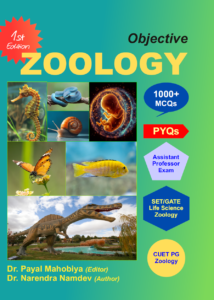
Introduction to Objective Zoology
Zoology is the scientific study of animals and their behavior, physiology, and classification. It encompasses a wide range of topics, from the smallest microorganisms to the largest mammals. Objective zoology aims to provide an unbiased and comprehensive understanding of the animal kingdom, focusing on observation and data-driven research.
By studying zoology, we gain insights into the complex interactions within ecosystems and the roles various species play in maintaining ecological balance. This field is essential for conservation efforts and helps us better understand the natural world.
The Importance of Studying Animal Behavior

Studying animal behavior is crucial for several reasons. It helps us understand how animals interact with their environment and with each other. By observing behaviors such as mating rituals, hunting strategies, and social structures, researchers can gain insights into the survival mechanisms of different species. Understanding animal behavior also aids in conservation efforts. For instance, knowing the migration patterns of endangered species can help in creating protected areas.
Additionally, studying animal behavior can improve human-animal interactions, such as training domestic animals or managing wildlife in urban areas. This knowledge is vital for preserving biodiversity and ensuring the well-being of both animals and humans.
Key Aspects of Wildlife Biology
Wildlife biology focuses on the study of animals in their natural habitats. It covers various aspects, including population dynamics, habitat use, and the impact of human activities on wildlife. Population dynamics involve understanding the birth and death rates of species and how they affect the overall population size.
Habitat use examines how animals utilize different environments for feeding, breeding, and shelter. The impact of human activities, such as deforestation and pollution, on wildlife is another critical area of study. Wildlife biologists use this information to develop conservation strategies and manage wildlife populations sustainably. This field plays a vital role in protecting endangered species and maintaining biodiversity.
Understanding Zoological Studies
Zoological studies involve the scientific investigation of animals and their ecosystems. Researchers use various methods, such as field observations, laboratory experiments, and genetic analysis, to study animals. Field observations involve watching animals in their natural habitats to gather data on their behavior and interactions. Laboratory experiments allow scientists to control variables and study specific aspects of animal physiology.
Genetic analysis helps in understanding the evolutionary relationships between species and identifying genetic factors that influence behavior and health. Zoological studies provide valuable insights into animal biology and contribute to our understanding of evolution, ecology, and conservation.
Interesting Zoology Facts for Beginners
Zoology is full of fascinating facts that captivate beginners. For instance, did you know that a group of flamingos is called a “flamboyance”? Or that the heart of a blue whale is so large that a human could swim through its arteries? Another intriguing fact is that octopuses have three hearts and blue blood.
Additionally, certain species of frogs can freeze completely and then thaw back to life. These interesting tidbits highlight the incredible diversity and complexity of the animal kingdom. Learning about these facts not only sparks curiosity but also fosters a deeper appreciation for the wonders of nature.
Careers in Zoology and Wildlife Biology

A career in zoology or wildlife biology can be incredibly rewarding for those passionate about animals and conservation. Zoologists and wildlife biologists work in various settings, including research institutions, conservation organizations, zoos, and wildlife reserves. They may conduct field research, analyze data, develop conservation plans, or educate the public about wildlife.
Some zoologists specialize in specific groups of animals, such as birds, mammals, or reptiles, while others focus on broader ecological principles. Careers in this field often require a strong background in biology and may involve advanced degrees for specialized research roles. The work of zoologists and wildlife biologists is essential for protecting biodiversity and promoting sustainable interactions between humans and wildlife.
Conclusion
Objective zoology provides a comprehensive understanding of the animal kingdom through unbiased observation and scientific research. Studying animal behavior, wildlife biology, and zoological studies enhances our knowledge of the natural world and supports conservation efforts.
Fascinating facts about animals inspire curiosity and appreciation for nature, while careers in zoology and wildlife biology offer opportunities to contribute to environmental sustainability. As we continue to explore and understand the complexities of the animal kingdom, the field of zoology remains vital for preserving the diversity and health of our planet.
About the book

Objective Zoology
Author: Dr. Narendra Namdev
Editor: Dr. Payal Mahobiya
ISBN: 9788197249082
Date of Publication: 2024
Format: Paperback
